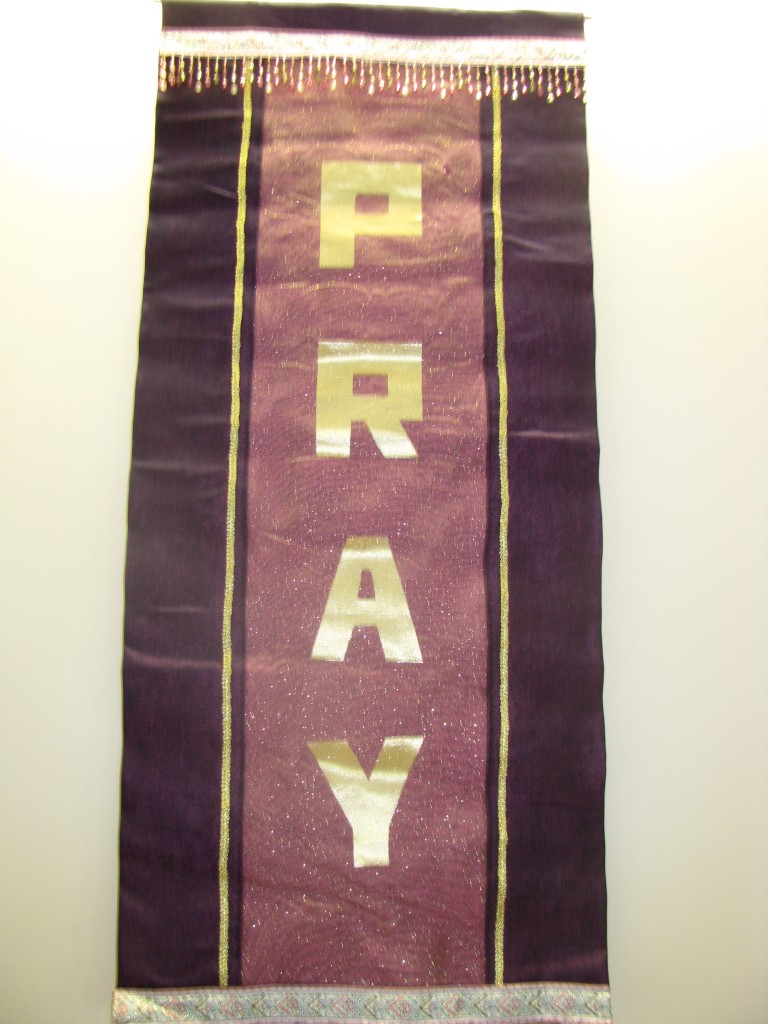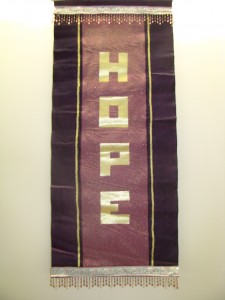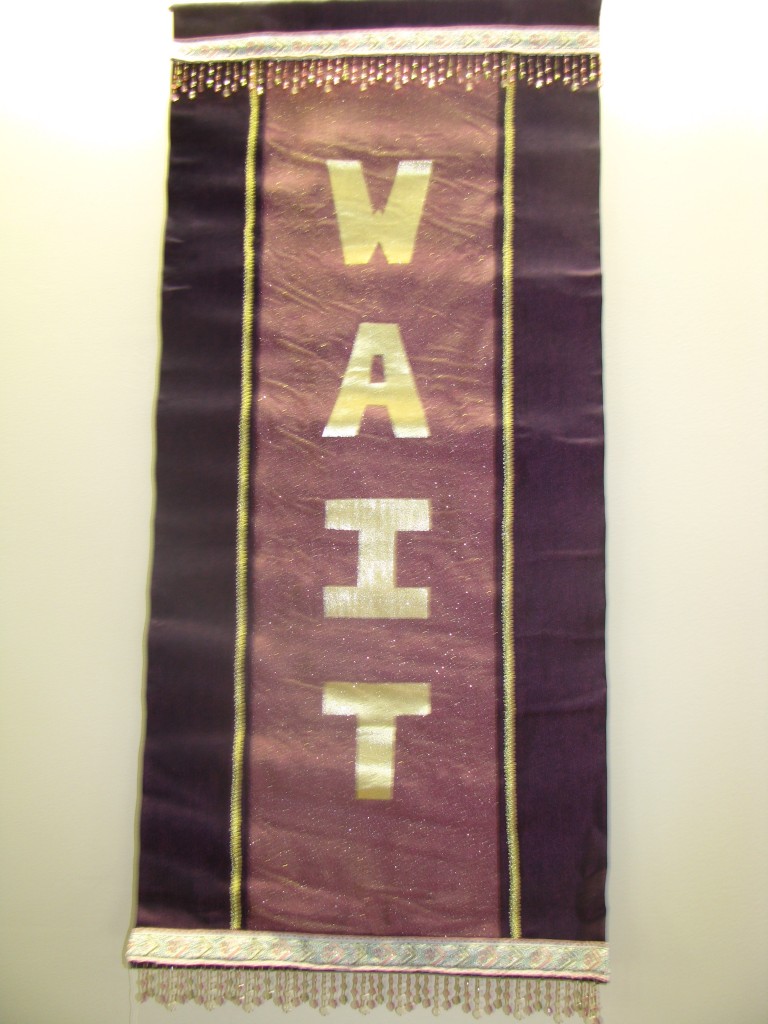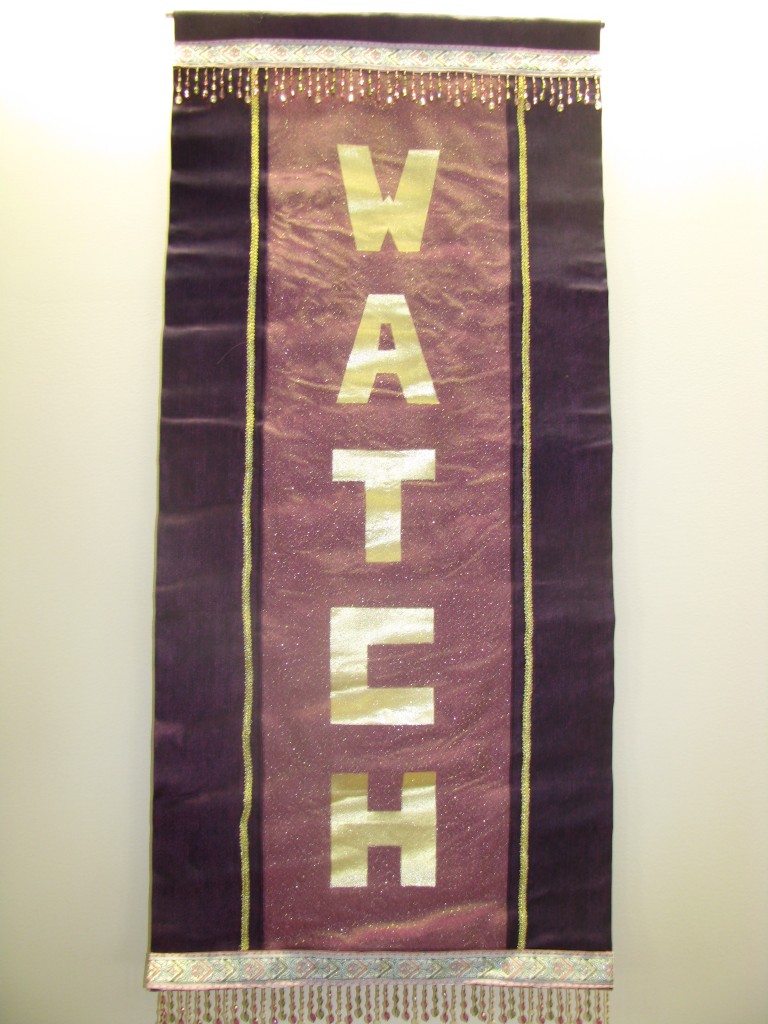Fr. Charles Blauvelt, Vicar
A Advent 1
St. Matthew 24:36-44
Gathering his disciples on a hilltop far removed from the noise and haste of the bustling city, Jesus cautioned them to be ready. As Noah in the days before the flood, as the faithful worker in the field, as the householder in the middle of the night, “you also must be ready, for the Son of man is coming at an hour you do not expect.â€
Without having taken a single step outside the confines of his tiny homeland nestled at the eastern end of the Mediterranean Sea, Jesus knew that things were going to get difficult for his followers everywhere. He saw the signs in the world around him, and warned them to be prepared, to be ready, to be alert through the times of darkness and doubt. Forces, both religious and political, were already mounting in strength against the small band of believers. Temptations were beginning to lure some away, including the one who would eventually betray him. Fear had claimed the allegiance of many hundreds, and would continue to do so even in the best of times. Disillusionment was waiting in the wings to snatch the new-found faith of others. And the first of many times of persecution would soon be visited upon the few who remained.
If nothing else, the season of advent flies in the face of our yearly plunge into cultural denial, and connects us those same forces of darkness that still infest our world, and afflict our daily lives. A cursory glance at the recent headlines reminds us that the reality of human evil abounds. U.S. soldiers are blown up by terrorists, killing and maiming hundreds of innocents—all in the name of God. In Bagdad a car bomb explodes, and in Afghanistan news of yet another massacre leaves the prospects for peace at an even greater distance. Young children are assaulted and murdered in schools and houses next door by teenagers and adults who show neither remorse for their actions, nor concern for the pain and heartache they cause others. And pictures of incredible suffering and devastation left by incredibly violent storms in the Philippines leave us feeling afraid and out of control.
In all of this, Jesus reminds us to be ready.
A little closer to home, over morning coffee we are greeted by the unsettling news of a neighbor being beaten and robbed right down the street. Less and a week later an armed robbery closes the bank, with rumors of a bomb scare to boot! All this follows close on the heels of similar crimes at neighborhood convenience stores, a shooting here, a mugging there.
Through all of this, Jesus counsels us to be ready.
“How?†we may well ask; ‘how do we stand ready through all of this chaos erupting, not only around the world at large, but also right here in our own back yard? Do we carry on as others do, and pretend that it’s not really there? Or do we wall ourselves away, turning our homes into fortresses with alarm systems and trunks full of automatic weapons? Could that be what Jesus, the Prince of Peace, means by being ready?
While these may be the answers which some people adopt for their lives, I would certainly challenge the notion that the same holds true for Christians. Beginning with the disciples themselves, and continuing throughout history right to our present day, faithful followers of Jesus the Christ have struggled to avoid falling victim to the fear-inspired mindset that leads to a denial of the evils of life on the one hand, or armed confrontation with those evils on the other. As St. Paul instructed us so many years ago, the Christian path is to know the hour, to know the realities of life, but to live according to a different reality; to “cast off the works of darkness and put on the armor of light,†that we may “conduct ourselves becomingly as in the day.â€
So where do we find this armor of light that helps us in standing ready? Where are whatever tools we need not only to survive the current chaos, but to know the hope of salvation promised by Christ? Well, my friends, you’ve come to the right place. For the answer is sitting all around you. Leaving us much more than a set of teachings for the good times and the bad, Christ Jesus left us Himself—the Body of Christ, the Church. Our readiness for the advent of God in our lives depends to a large extent on the surety of our connection with this, the Body of God’s Son, right here at Holy Cross.
As we have rehearsed since the moment of Christ’s Ascension, the way to remain on a firm and faithful footing amid all the craziness of human existence is to build our lives in the company of other faithful people, that together we may remain focused on Christ and healthy in our approach to life on earth. For us, the secret is in a faithful balance—structuring our lives that all bases are covered, that all needs are met, allowing faith to form the foundation of our days.
Several years ago, Fr. Oehmig of the University of the South offered some helpful hints for discovering this balance in building a faithful life, one day at a time. In ten simple steps we are connected with one another, able to “conduct ourselves becomingly as in the day.â€
- “In a conscious, sincere way, daily turn your life over to the care and protection of God, asking for the empowerment to do what God has given you to do.â€Â Surrender, which lies at the heart of every prayer, recognizes that we are cradled in the arms of holy love every minute of even the most stressful days, leading us lean on one another for help and support.
- “Read something from Scripture daily, even if it is but one verse. In a planned or unrehearsed way, it’s up to you. And when God presents a chance to do so, share your insights or questions with another Christian or two.â€
- “Go to church at least weekly. Forget being the Church without going to church. Has anybody ever come into a deep Christian commitment watching ‘Dateline’, [the Today Show], or slogging through the mud on a football field?â€
- “Forgive whoever has offended you, regardless of the quality of his or her repentance.â€Â Resentment or unforgiveness blocks any possibility of finding joy in life.
- “Give more money than you think you can, with no thought of the way it is going to be spent or how you are going to be repaid. Remember the root of [the word] ‘miserable’ is ‘miser.’â€Â  It is only when we give of ourselves that we can know how abundantly blessed we truly are.
- “Tell someone you love that you love them.â€Â Don’t rationalize or assume that your words of love are unnecessary, even if you see them every day. Stay connected.
- “Pray for someone you dislike to be blessed in abundance. Very similar to forgiveness, praying for another is a good way to get unhooked from your favorite enemy and your favorite bad feeling.â€
- At home, at the store, even at work, “Say ‘no’ to something you feel angry or depressed after doing, and ‘yes’ to something you feel happy about after doing. Forget if it’s religious or not.â€Â Half the time, as C.S. Lewis reminds us, God’s joyous presence with us comes as a complete surprise.
- “Allow any portion of the day, however serious, to be interrupted by a joke.â€Â Even the armor of light needs a lift now and then. And,
- “Discover at least seven ways to play that cost less than $5.00. I know this will send MasterCard and the shopping malls into apoplexy [especially at this time of year], but it is possible—and necessary—to do.â€
It’s all there, my friends—all that we need to keep our armor of light shining brightly. And the people we need to help us stay ready are all here, here in the Body of Christ. For it is in coming together, striving together to keep all things in balance, that we remain ready together—ready to ward off the forces that would pull us from the way of Christ, ready to welcome the Lord Jesus upon his glorious return.
Let us pray:
Almighty God, give us grace to cast away the works of darkness and put on the armor of light, now in the time of this mortal life in which you Son Jesus Christ came to visit us in great humility; that in the last day, when He shall come again in His glorious majesty to judge both the living and the dead, we may rise to the life immortal; through Him who lives and reigns with you and the Holy Spirit, one God, now and for ever. Amen.



